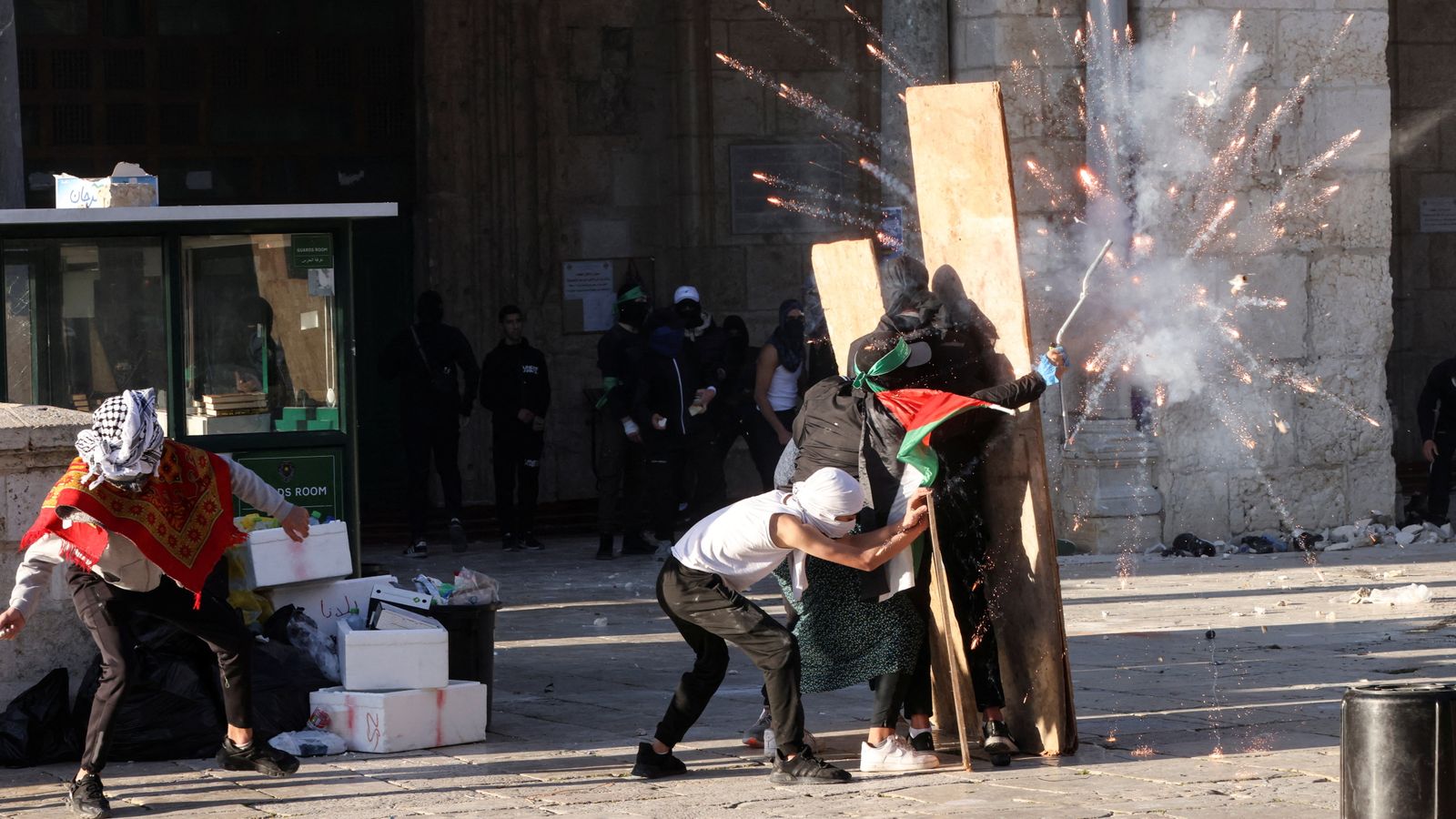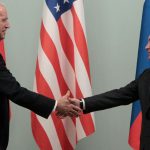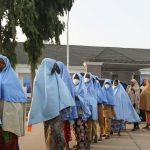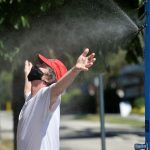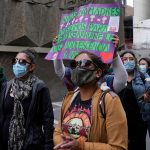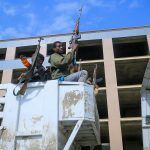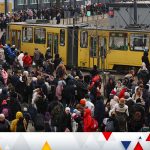Jerusalem is bracing itself for another tense week as Palestinians prepare on Monday to celebrate the end of Ramadan with Eid al Fitr, and Israelis mark Independence Day this coming Thursday.
Both events could spark further trouble as feelings are running high between the two sides following a violent month.
Fourteen Israelis were killed in four separate terror attacks in late March and early April, and more than 20 Palestinians lost their lives in clashes with Israeli soldiers.
There has also been regular fighting between Muslim worshippers and Israeli police in the al Aqsa mosque compound in Jerusalem’s old city.
On multiple occasions, police have entered the site and used rubber bullets, tear gas and stun grenades to repel Palestinians throwing rocks and fireworks at them.
On one occasion police even went into al Aqsa mosque itself and arrested more than 150 Palestinians.
Many of them remain in detention.
Israel: Bomb scare at airport after US family pack unexploded shell to take home as ‘souvenir’
Stop comparing the Holocaust to other events in history, Israeli leader Naftali Bennett urges
Israel airstrikes target Gaza Strip in response to rocket attack
The actions of Israeli police have been heavily criticised by neighbouring Jordan, which maintains official custody of al Aqsa, the third most holy site in the Islamic faith.
Two of the Palestinians killed in recent weeks were shot in the village of Husan, close to Bethlehem.
One of those was 46-year-old Ghada Sabateen, a mother of six who walked towards a makeshift Israel Defence Forces (IDF) checkpoint.
Soldiers shouted at her to stop and fired warning shots, but then shot her in the leg when she carried on towards them.
No weapons were found on her.
Her family have said they believe Ghada was murdered.
“There is no way to express my grief,” Ghada’s mother told Sky News.
“She was well-mannered, respectful and polite. She was top of her maths class at Bethlehem University.
“Would the soldier have done this to his mother or sister? I will not forgive him.”
The IDF told Sky News “the incident is being examined” but their soldiers followed correct protocol and Ghada “received initial treatment at the scene by soldiers”, however “Palestinians at the scene prevented the suspect from being evacuated for further medical treatment”.
Middle East correspondent
As Eid approaches and the holy month of Ramadan nears an end, there is a quiet hope that all-out conflict has been avoided – for now.
It has been a very tense month.
I can’t remember how many times I’ve woken early to explosions coming from the al Aqsa compound in the old city – every time you wonder whether this will be the day it finally escalates out of control.
I’ve spoken to people on all sides, daily – Palestinians living in the West Bank and east Jerusalem, Israelis in government and the military, Gazans, diplomats, aid workers and of course ordinary people, just hoping to live their lives in peace, whatever faith or nationality they identify as.
The common theme is that nobody knows what might happen – it is simply too unpredictable here.
‘Ali, if war breaks out, it will probably happen when you least expect it, triggered by a small event that appears to be not much but ends up being the final straw,’ was the repeated advice from a trusted colleague here, who has seen it all many times before.
The tensions this year have taken on a different form to the violence that led to war 12 months ago.
Sheikh Jarrah, the Palestinian neighbourhood coveted by some Israelis in east Jerusalem, has been unusually quiet; likewise Damascus Gate, where young Palestinians gather to mark iftar after sundown.
Both those were the scenes of terrible violence last year.
Instead, some of it has happened deep inside the West Bank, often out of sight to most people and where there haven’t been journalists on hand to record it.
IDF operations in Jenin are ongoing and have the potential to cause serious violence if the Israelis do go in heavy, as some newspapers here have speculated they might, once Ramadan is over.
What is not in doubt is that living conditions for Palestinians in the West Bank have deteriorated significantly since last year.
Young people have few prospects or chances.
They tell me they feel humiliated and oppressed, often just plain scared.
Some of them are also now openly mooting the prospect of a new intifada.
I don’t think we are at that stage, yet, but the fact they bring it unprompted is notable.
The governing Palestinian Authority is very weak and is doing little to improve life for many of its people.
Nevertheless, despite their best efforts to ferment ‘resistance’ in the West Bank this past month, Hamas is yet to get a solid toe hold in the territory.
Most troubling, perhaps, was the assessment of one humanitarian worker who told me that many in the West Bank now perceive themselves to be worse off than fellow Palestinians living in Gaza.
Gaza – the strip that has been under blockade for 15 years, repeatedly bombarded by airstrikes, and enclosed by walls and fences stopping most citizens from leaving.
And yet the perception now is that it is worse in the West Bank – that should give us pause for thought.
Another war is not inevitable, things can be done to avoid it.
But as we are today, looking back at a month of unrest and violence, the conditions for war are clearly there – if not now, then one day soon.
As tensions have increased, rogue elements inside Gaza have fired rockets into Israel – one landed in the town of Sderot, damaging a house but causing no serious injuries, others have been intercepted by the Iron Dome defence system.
In return, the IDF launched airstrikes against Hamas military targets, destroying weapons factories but causing no casualties.
IDF counter-terror operations continue in the West Bank, focused primarily around the northern town of Jenin.
This week one Palestinian was shot dead and 15 arrested during fighting there.
“The IDF is taking a dual approach,” Richard Pater, a former IDF commander told Sky News.
“At the same time whilst they want to combat terrorism, they’re also offering a policy of distinction where they want to make sure that the fabric of quality of life for regular Palestinians, for the innocent Palestinians, can go on and carry on their normal lives and we’ve seen this week as well, with tens of thousands of Palestinians coming in and able to pray at the mosque during Ramadan, so it’s a dual approach by the IDF.”
